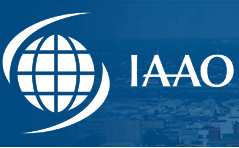Start Date
27-6-2024 11:00 AM
End Date
27-6-2024 12:15 PM
Description
The Dutch property tax assessment system has been on a yearly revaluation cycle for over 15 years. Municipalities and service centers working for municipalities ensure that each property, both commercial and residential, is reassessed annually. (EXPAND) This setup guarantees values at actual market level, taxpayer’s trust in the system and transparency. But there are also disadvantages. An annual revaluation cycle is accompanied by the annual possibility of objection and appeal against the assessed value. Although there were not many objections in previous years (around 3% for residential properties and around 6% for non-residential properties), these objections are causing growing concern among municipalities and service centers that work for municipalities. This became even more significant when the number of objections for residential properties more than doubled in 2023. According to Dutch law, the costs incurred for hiring professional assistance to object or appeal are covered by the “losing” party (in the event of a change in assessed value, the municipality or service center have to pay). This phenomenon has led to the emergence of legal fee companies (LFCs) (a specific form of tax agents), in Dutch referred to as No Cure No Pay (NCNP) companies. These LFC’s made it a business case to file objections and appeals on behalf of the property owners. If the objection or appeal is granted the LFCs will take the compensation of the costs as generated income. If the objection or appeal is not granted, the costs will be borne by the LFC. Filing an objection or appeal is intended to be simple, so any taxpayer should be able to this without professional assistance. But for many people, formal procedures with government are always considered a barrier. LFCs serve an important role by making the process for objections and appeals accessible for people who are affected by such a barrier, resulting in nearly 50% of all objections filed by these LFC’s. After the almost tripling of of the number of objection submitted in 2023, a change in the law was implemented as of January 1st, 2024. This change has reduced compensation to these companies for a successful objection by 75%. This presentation discusses the effects of the change in the law and its impact on the number of objection and appeal procedures in 2024.
Recommended Citation
Hermans, Luc; Kathmann, Ruud; and Kuijper, Marco, "The impact of legal fee companies on the Dutch real estate assessment practice before and after policy changes" (2024). Mass Appraisal Valuation Symposium. 16.
https://researchexchange.iaao.org/mavs/mavs2024/sessions/16
The impact of legal fee companies on the Dutch real estate assessment practice before and after policy changes
The Dutch property tax assessment system has been on a yearly revaluation cycle for over 15 years. Municipalities and service centers working for municipalities ensure that each property, both commercial and residential, is reassessed annually. (EXPAND) This setup guarantees values at actual market level, taxpayer’s trust in the system and transparency. But there are also disadvantages. An annual revaluation cycle is accompanied by the annual possibility of objection and appeal against the assessed value. Although there were not many objections in previous years (around 3% for residential properties and around 6% for non-residential properties), these objections are causing growing concern among municipalities and service centers that work for municipalities. This became even more significant when the number of objections for residential properties more than doubled in 2023. According to Dutch law, the costs incurred for hiring professional assistance to object or appeal are covered by the “losing” party (in the event of a change in assessed value, the municipality or service center have to pay). This phenomenon has led to the emergence of legal fee companies (LFCs) (a specific form of tax agents), in Dutch referred to as No Cure No Pay (NCNP) companies. These LFC’s made it a business case to file objections and appeals on behalf of the property owners. If the objection or appeal is granted the LFCs will take the compensation of the costs as generated income. If the objection or appeal is not granted, the costs will be borne by the LFC. Filing an objection or appeal is intended to be simple, so any taxpayer should be able to this without professional assistance. But for many people, formal procedures with government are always considered a barrier. LFCs serve an important role by making the process for objections and appeals accessible for people who are affected by such a barrier, resulting in nearly 50% of all objections filed by these LFC’s. After the almost tripling of of the number of objection submitted in 2023, a change in the law was implemented as of January 1st, 2024. This change has reduced compensation to these companies for a successful objection by 75%. This presentation discusses the effects of the change in the law and its impact on the number of objection and appeal procedures in 2024.


